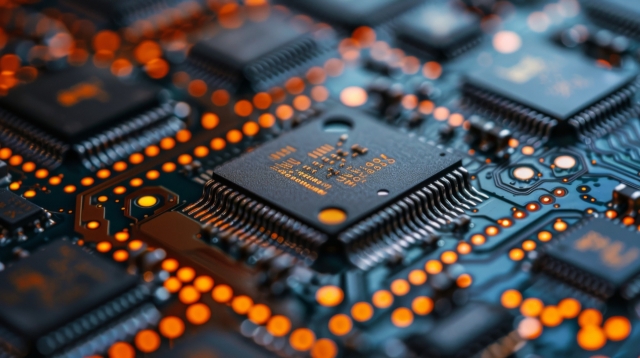Calls grow for swift passage of stalled chips, AI bills
 (123rf)
(123rf)
Business leaders are calling on lawmakers to expedite the approval of bipartisan, noncontentious bills on semiconductors and artificial intelligence, amid rising concerns that political uncertainty following President Yoon Suk Yeol’s impeachment could delay enactment of critical legislation, jeopardizing industry competitiveness.
Finance Minister Choi Sang-mok on Sunday stressed the importance of passing legislation such as the Semiconductor Special Act, the AI Basic Act and the Expansion of the National Power Grid Act, a day after the parliament's impeachment of Yoon.
“These are bills that will determine the future trajectory of our industries,” said Choi. “We will work diligently to convey the voices of the business sector to the National Assembly so that these bills can be handled within the year.”
Industry sources say the chiefs of local business associations will urge the parliament to pass the economic bills during a meeting with Woo Won-shik, speaker of the National Assembly, scheduled for Tuesday.
According to the Korea Chamber of Commerce and Industry, 12 economic bills proposed by both parties since the 22nd National Assembly began in May remain stalled.
Among the most pressing is the Semiconductor Special Act, proposed by the ruling People Power Party in November. The bill, akin to the US' CHIPS and Science Act, would provide direct subsidies to chipmakers and exempt them from a national cap on working hours.
South Korea’s semiconductor-related incentives, including tax credits, amount to around 1.2 trillion won ($836 million), only one-tenth of those of Japan and one-fifth of those of the US, according to calculations by the Korea Semiconductor Industry Association.
Ruling party Rep. Lee Chul-kyu, who proposed the bill, has emphasized that the legislation will help Korean chipmakers remain competitive against rivals, as the US, Japan and China are pouring "astronomical amounts of subsidies at the national level to attract investment, build domestic production facilities and expand exports."
Lawmakers from both parties discussed the chips act in the parliamentary trade committee in November, agreeing on the need for approval. However, the main opposition party’s objection to exempting chip R&D workers from the country’s 52-hour workweek regulation — known as the “white-collar exemption” — has delayed progress.
The bill failed to make it to a plenary vote on Dec. 10, the final day of the regular parliamentary session, and will likely be postponed to next year.
“The legislation has to be passed as soon as possible,” Ahn Ki-hyun, executive director of the Korea Semiconductor Industry Association, told The Korea Herald. “The delay in its passage is creating significant instability. The bill’s incentives — the 52-hour workweek exemption and tax credits — are all interconnected with companies’ R&D investment plans. The lack of clarity will increase risks for the companies.”
Other urgent bills include the Artificial Intelligence Basic Act, which establishes a framework for the country’s AI development, including ethical guidelines, safety and compliance regulations and national support measures.
The act cleared the parliamentary committee on science, ICT, broadcasting and communications on Nov. 26, but remains stalled, as it was not included on the agenda for the National Assembly’s last regular session on Dec. 10.
Another high-priority bill awaiting passage is the Expansion of the National Power Grid Act, which addresses construction and expansion of the power grid infrastructure.




